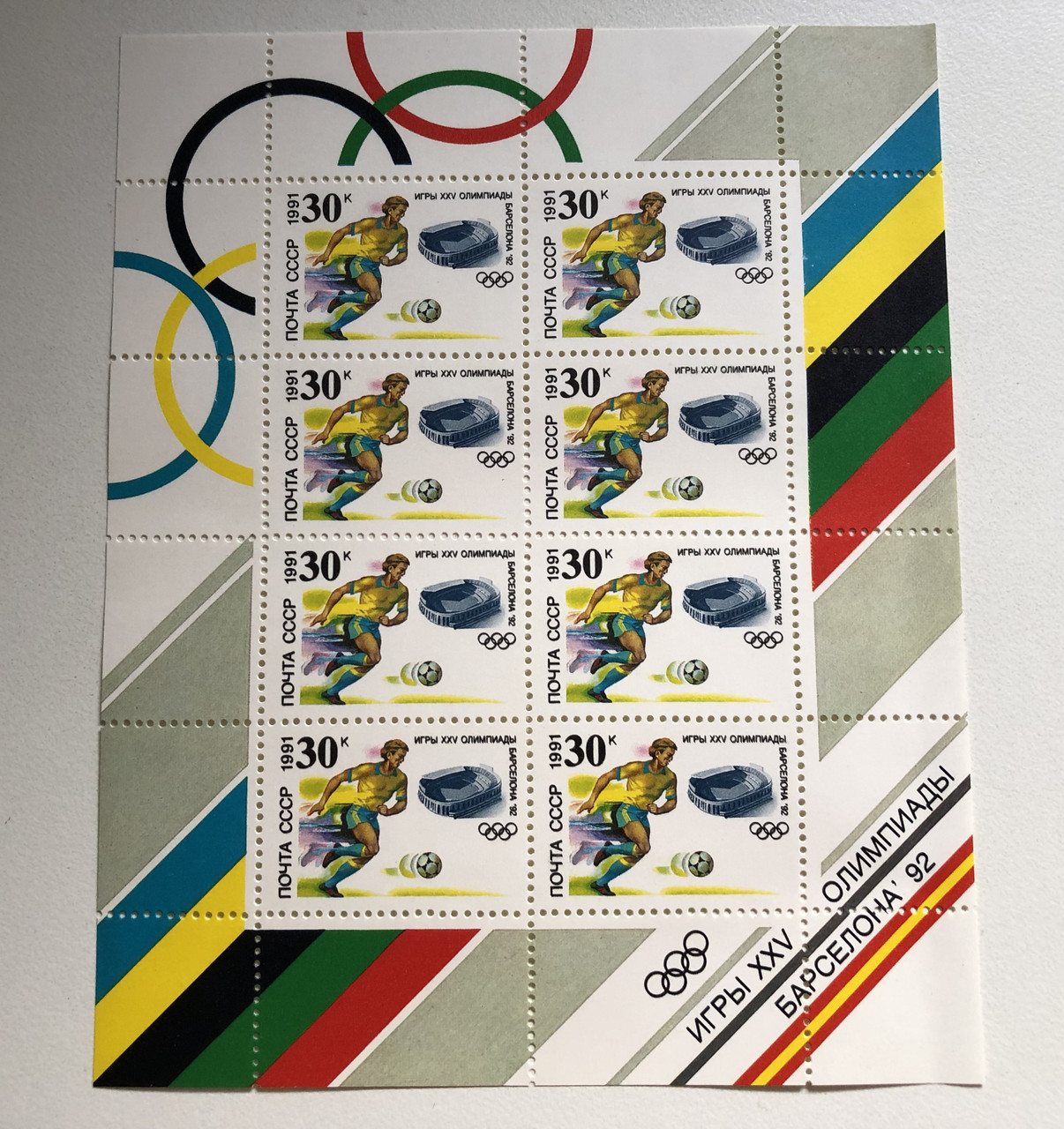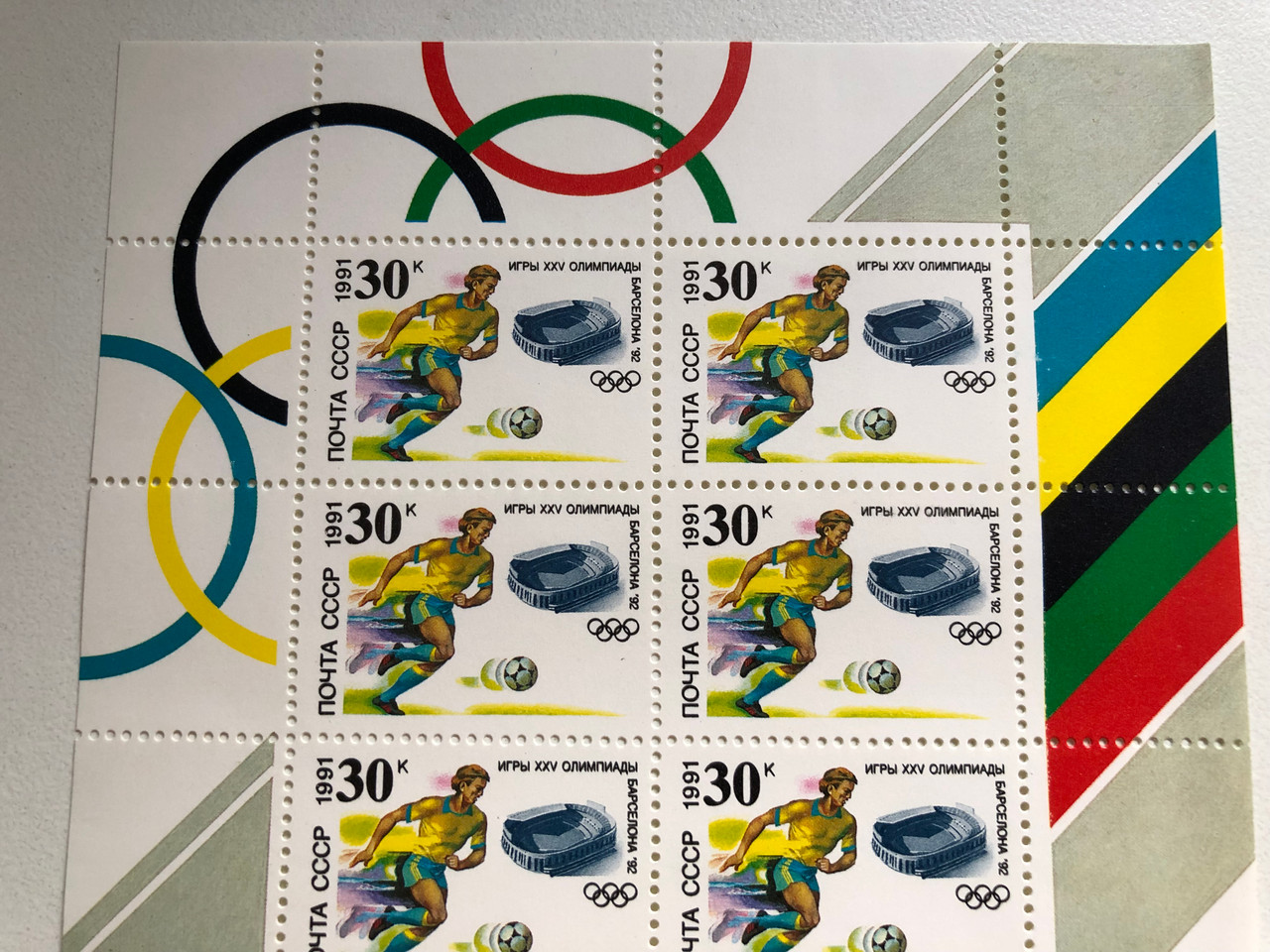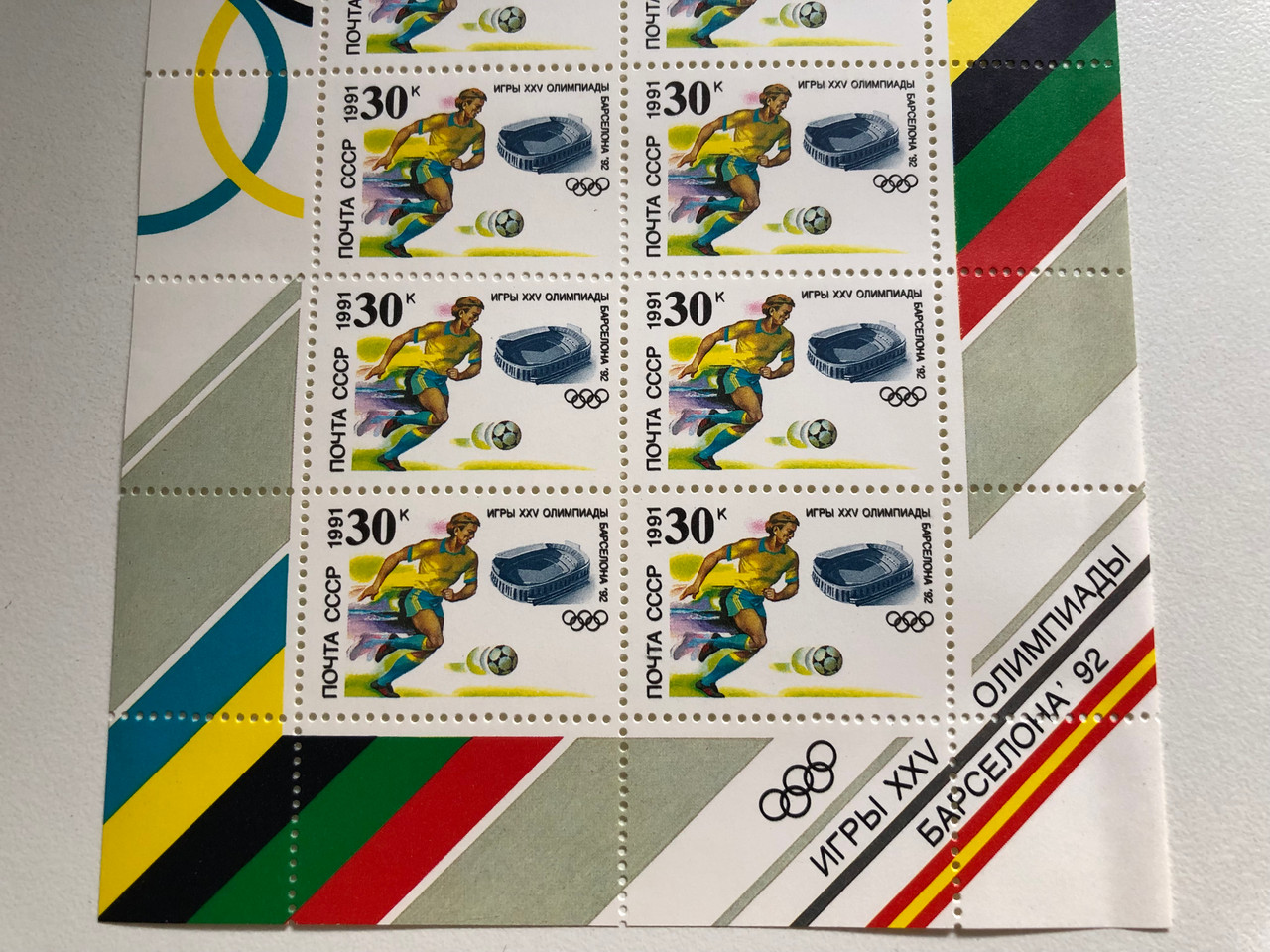Description
ПОЧТА СССР 1991 (USSR POST) / ИГРЫ ХХѴ ОЛИМПИАДЫ БАРСЕЛОНА *92 (THE XXV OLYMPICS GAMES BARCELONA *92) / Stamp
The XXV Olympic Games were held from July 25 to August 9, 1992 in Barcelona, Spain. They were the first games after the end of the Cold War and the last games to be held in the same year as the Winter Olympics. The USSR had dissolved in 1991, and 12 former Soviet republics (excluding the Baltic states) competed as the Unified Team, which topped the medal table with 45 gold and 112 overall medals.
The USSR issued a series of 10 stamps and a souvenir sheet to celebrate the participation of the Unified Team in the 1992 Summer Olympics, which were held from July 25 to August 9 in Barcelona, Spain1. The Unified Team consisted of athletes from 12 former Soviet republics, except for the Baltic states, which competed under their own flags.
The stamps featured various sports and Olympic symbols, such as the Olympic rings, the Olympic flame, the Olympic torch, and the Olympic motto “Citius, Altius, Fortius” (Faster, Higher, Stronger). The stamps also had the inscription “XXV Олимпийские игры Барселона *92” (XXV Olympic Games Barcelona *92) and the emblem of the Unified Team, which was a blue star with five points and five interlocking rings.
The souvenir sheet had a face value of 50 kopecks and depicted a view of Barcelona with the Sagrada Familia and other landmarks. The sheet also had four stamps with images of gymnastics, swimming, athletics, and basketball. The sheet had the inscription “Союз Советских Социалистических Республик Почта” (Union of Soviet Socialist Republics Post) and the emblem of the USSR Post.
The stamps and the souvenir sheet were designed by V. Beltyukov and printed in offset lithography by Goznak in Moscow. They were issued on July 24, 1992, in a quantity of 3.6 million sets.
The stamps and the souvenir sheet are considered to be collectible items by philatelists and can be found on various online platforms, such as eBay, Delcampe, Colnect, and [StampWorld]. The prices vary depending on the condition, rarity, and demand of the items.

































